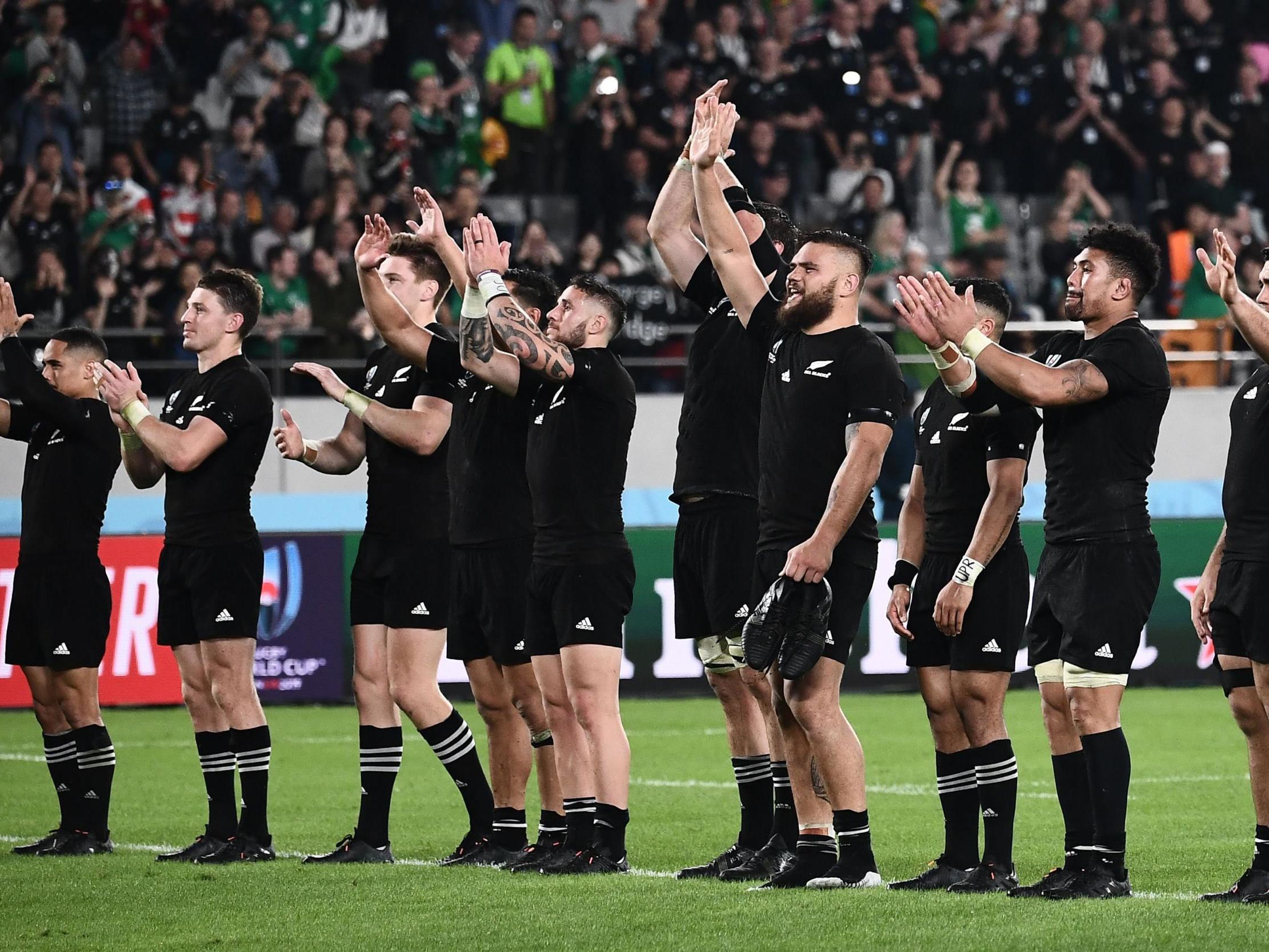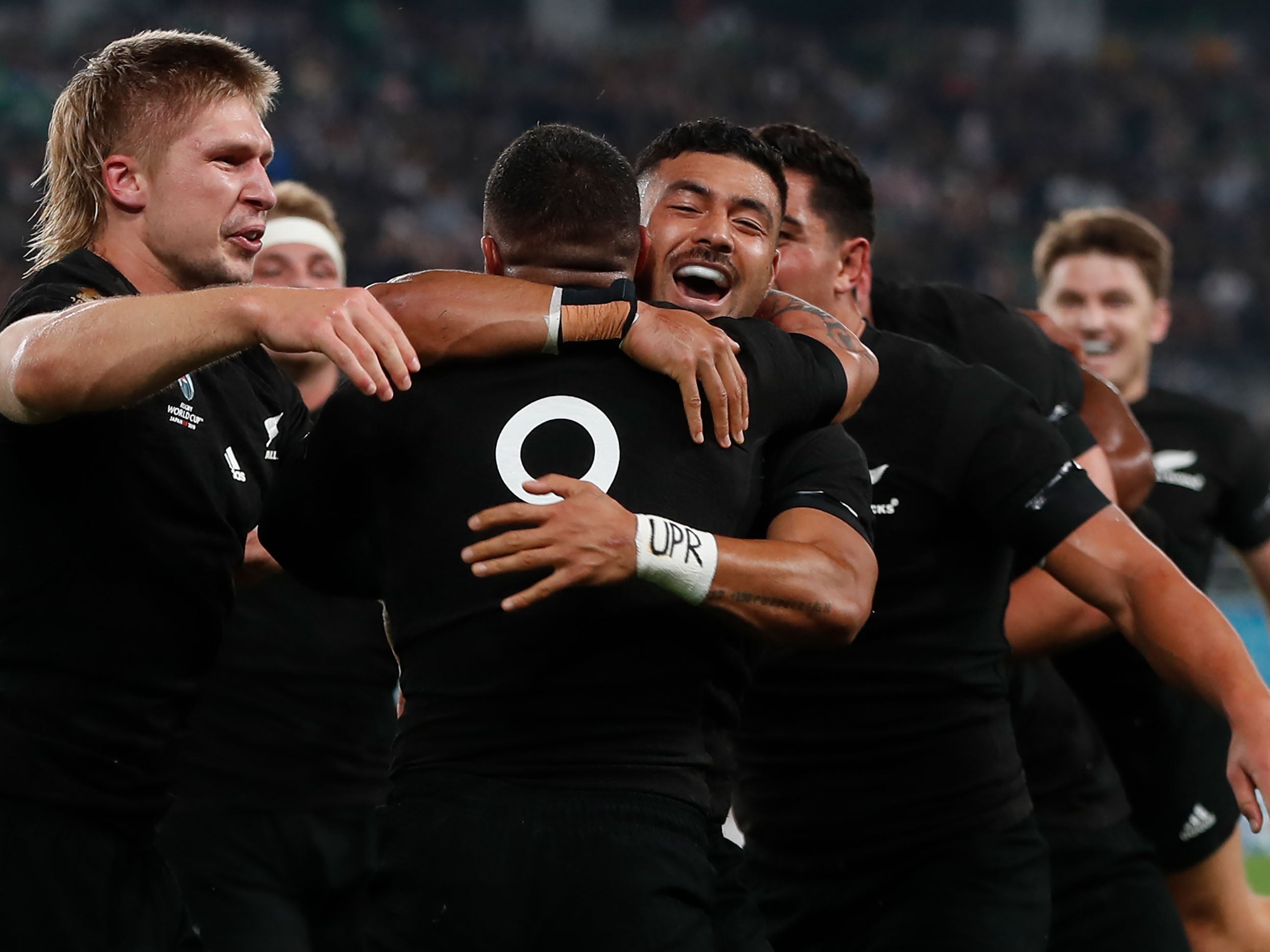“I’d never set eyes on them before. They were big animals. They were f***ing ferocious. I can remember John Kirwan looking over and winking, saying: ‘Enjoy your flight home.’ I know for a fact we were scared of them. They had everybody beaten before they played them. I don’t think we believed ourselves we were going to win that game.”
- Former Scotland international Alan Tait, on facing New Zealand at the 1987 World Cup
“I went into that game looking for the moment. It came a lot sooner than I thought it would. As early as the 20-minute mark, I could see the inevitability in their eyes. They knew this day wasn’t going to go that good for them.”
- Richie McCaw on the 2011 World Cup semi-final against Australia, taken from his autobiography, The Real McCaw (2012)
You sort of wonder what Eddie Jones was playing at on Tuesday. In a way, you had to admire his pluck. Going on about how all the pressure was on New Zealand in this Saturday’s World Cup semi-final. About how the pressure was going to be “chasing them down the street”. About how nobody expected England to pull off an upset. All very theatrical, and all spectacular copy, gratefully accepted by the many journalists in the room. And yet, one imagines that in the All Blacks camp, Jones’s words would have been taken less as a declaration of hostilities and more a statement of the bleeding obvious.
Perhaps the best explanation of the All Black aura comes from a native. As Warren Gatland once said of his upbringing in Waikato in the 1970s: “Back then the All Blacks were the best team in the world, always had been and always would be. To discover that other countries played rugby, and were any good at it, came as something of a shock. You were brought up believing the All Blacks were invincible.”
And so from the moment an All Black slips on his jersey, the expectation to continue that success is total and unstinting. The number of hurdles overcome to claim the shirt in the first place, and the wealth of challengers looking to steal it, generate their own manic energy.
Part of deconstructing an All Blacks team, then, is deconstructing the mythology around it. In the past, that weight of expectation has been as much burden as ballast. But since the agony and the exorcism of finally lifting the World Cup in Auckland eight years ago, they’ve won close to 90 per cent of all the matches they’ve played. In the World Cup itself, they’re on a streak of 18 consecutive victories. Perhaps it’s time to admit that this might all be a slightly more significant source of pressure than – say – an Eddie Jones press conference.
This is why so many of their opponents look beaten almost before a ball has been kicked. Certainly you suspect there was an element of this from Ireland at the weekend, who after suffering an intense and disastrous start never looked like they remotely believed they were capable of victory. We can argue the toss over whether this is a classic New Zealand side, but at their best they carry around the sort of aura that accompanies only the most dominant sporting champions: Vicente del Bosque’s Spain, the Golden State Warriors, Australia’s cricketers around the turn of their century, Rafa Nadal at Roland-Garros, Phil Taylor.

Here, then, is the conundrum for their opponents. Do you try and treat them like any other team when, deep down, we all know they’re not? Or is to acknowledge the aura, in a way, to succumb to it? This is why Jones’s mind games are such a double-edged sword: on one hand, there’s the potential of cutting the giant down to size, but by resorting to such tactics you’re sort of admitting the existence of the giant in the first place.
The fact that this Saturday’s game is only their second meeting in the space of five years merely adds to the sense of mystique. There was a wistful relish in the eyes of Ben Youngs here as he described his tussles with the All Blacks as the best atmosphere he’d ever known as a rugby player. Youngs is one of half a dozen survivors from England’s last victory over New Zealand at Twickenham in 2012, and knows exactly the sort of game that will be required. “You’ve got to be absolutely on it. They’re the most dangerous team in the world at punishing you.”
From the younger members of the squad, there’s a more carefree approach. “I was never too fazed by the whole mystique of the All Blacks,” said Anthony Watson. “I respect the prolonged success they’ve had as a team, but the whole aura that surrounds them and the ‘invincible’ stuff: I never bought into that. They are rugby players and we’re rugby players. They are definitely beatable.”

Of course, talking a good game and playing one are two very different things. But 13 of this squad have a precious life experience to fall back on. The last Lions tour exposed rare frailties in the New Zealand edifice, as Gatland’s side fought back from 1-0 down to square the series on foreign soil. Gatland’s diary from that series is a worthwhile read, notably for its insights on how the Lions eschewed a conservative, risk-averse style of play in favour of taking the game to the All Blacks, being brave on the ball, keeping the scoreboard ticking and refusing to take a backward step. “Let’s take it to these f***ers,” Sean O’Brien implores the dressing room before the pivotal second Test at Wellington. “Don’t give them any time. Don’t give them any space.”
Will any of this matter once the whistle blows on Saturday? Maybe not. Maybe, as the coaches and number crunchers are always drumming in, it’s simply a case of who executes their skills better on the night. But as England line up in the tunnel on Saturday evening, as they step onto the field, as they face the haka, as the first kick flies through the Tokyo air, they may just feel that little bolt of electricity, the headrush that attends any leap into the unknown.







